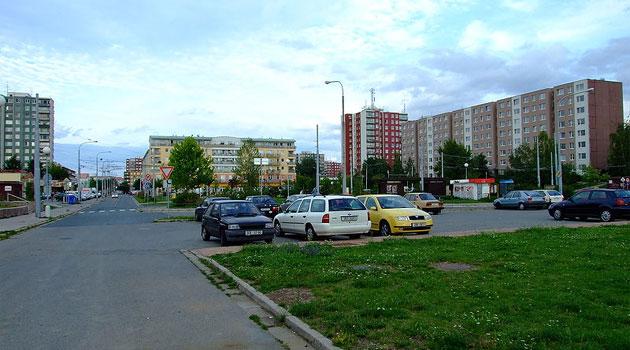Czech research shows 96 % of poorest families in Rapid Re-Housing maintain their housing and improve their health

A project in Brno, Czech Republic called “Rapid Re-Housing” providing municipally-owned apartment units for lease to families at risk of homelessness is celebrating significant success after its first year. According to research by Ostrava University, a total of 96 % of the families in the project have managed to maintain their housing, and what is more, the state of health of the children involved and their parents has improved.
“Brno is a pioneer in innovative social projects. I am glad that bravery has paid off, and as is being demonstrated with the Rapid Re-Housing project, this is the correct way forward. The findings of the study confirm that security of tenure significantly influences the lives of the families involved. We want to continue this trend. Our aim is to end homelessness for families with minor children in this city,” said Mayor Petr Vokřál.
As part of the Rapid Re-Housing project, 50 people at risk of homelessness were leased municipally-owned apartments. Researchers from Ostrava University then followed the families after they moved in and compared their trajectories to those of a control group of families who remained housing insecure.
Using the methods of a randomly controlled experiment, the researchers measured the impact of participation in the project on the health and other lifestyle characteristics of the families. “Our experiment is unique within the Czech Republic exactly because it uses methods that are customarily rather used in medical science and in the context of global science to test the effect of access to housing primarily on these families. The first findings were presented at international expert conferences and we are planning to publish them in academic journals,” explained the head of the research team, Štěpán Ripka of Ostrava University.
The most important outcome for the leadership of the City of Brno is the fact that a total of 48 families of the 50 participating managed to maintain their housing, demonstrating the functionality of the method. “The project outcomes are especially important today when we are following how residential hotels are gradually closing in different cities, and city governments must address the fact that families with minor children are ending up, through no fault of their own, from one day to the next on the street. Brno now can be, for the rest of the republic, an inspiration in how to sensitively address the issue of social housing and thereby prevent the creation of ghettos,” said Matěj Hollan, the Deputy Mayor in charge of culture and social affairs.
The first findings of the data analyzed, moreover, reveal that during the first six months of the project the level of psycho-social stress significantly declined among the mothers participating, that both adults’ and childrens’ sleep improved, that their subjective perception of their personal safety increased, and their mistrust of society was reduced, which according to researchers is essential for family integration. The physical health of the families also improved – the numbers of calls to ambulances and hospitalizations declined, as did the amounts of antibiotics used, while the overall state of health improved for both children and their parents.
“Already after the families had been in their housing for six months we could state that the project had saved 25 ambulance calls, 19 hospitalizations, and 63 antibiotic prescriptions for the 50 families being followed in comparison to the control group. The accident rate of the children after six months declined from 12 % to 2.4 %. We anticipate the project will have a positive impact on public expenditure in the area of health care,” Ripka said.
The overall findings after the project’s first year will be presented this autumn by the researchers. “Rapid Re-Housing, without a doubt, has demonstrated that people in need of housing can deal with regular residency without any problems. The first findings of the study, moreover, document clear effects on the health and psychological state of people access stable housing. We can choose whether thousands of children in these families will grow up in poverty without any future, or we can give them a chance. We have shown that our approach works. Now it is just a matter of whether those who have the power to change the current state of affairs will be brave enough to do so,” commented Martin Freund, the city assembly manager-at-large for social inclusion.
The Rapid Re-Housing project was financed from an EU subsidy and the city contributed approximately 1.6 % of the overall cost. The overall costs were CZK 9.7 million [EUR 372 000].
Project funding financed the work of three partners – the City of Brno, which guaranteed its implementation and partially provided social work, Ostrava University, and the IQ Roma Servis NGO. Ostrava University provided all of the evaluation of the project and undertook the research, while IQ ROma Servis provided social work with the families.